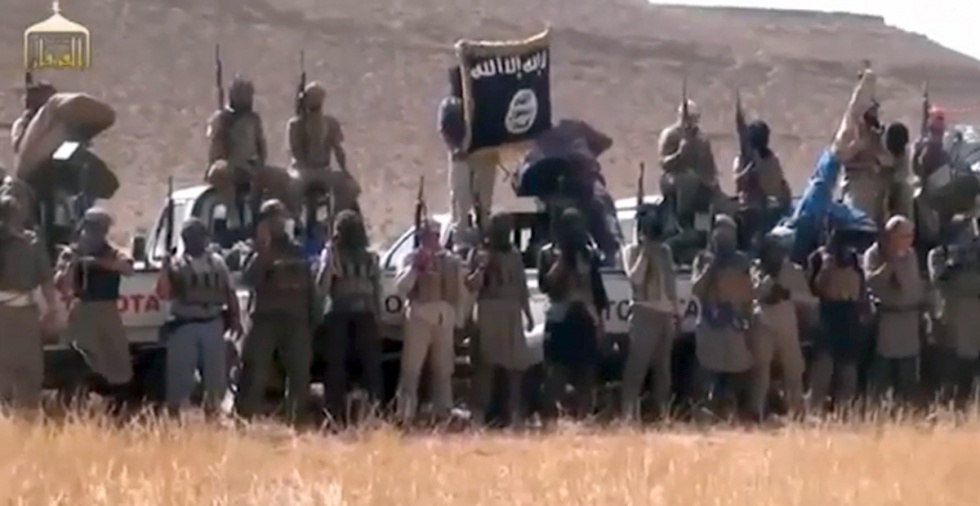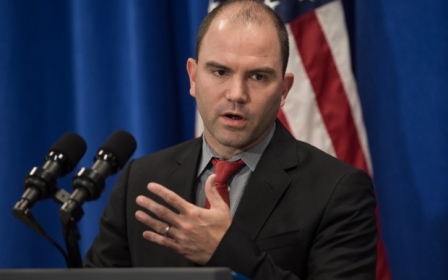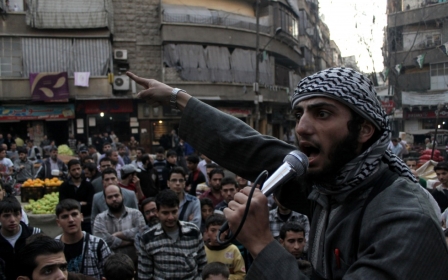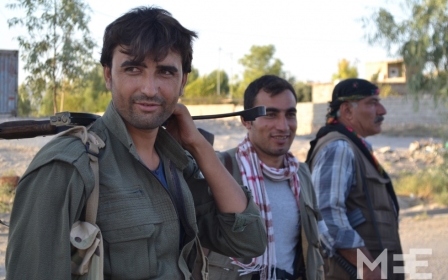Iraq forces mass in bid to break IS siege of Turkmen town

Iraq was massing forces Wednesday for an operation to break the two-month Islamic State (IS) siege of the Shiite Turkmen town of Amerli, amid growing fears for residents short of food and water.
The planned counter-offensive comes amid reports that US President Barack Obama is weighing a decision to authorise air strikes and aid drops in the area to help around 12,000 people trapped in the northern town.
According to a civilian volunteer commander, thousands of Shiite militiamen from groups including Asaib Ahl al-Haq and the Badr Organisation are gathering in the Tuz Khurmatu area of Salaheddin province, north of Amerli, in preparation for a battle to break the siege.
An army lieutenant general said that security forces were mobilising in the Jabal Hamreen area, south of Amerli, to launch an attack.
Iraqi aircraft have begun targeting positions of IS around Amerli, carrying out nine strikes on Tuesday, an officer said.
Time is running out for the mainly Shiite Turkmen residents of Amerli, who face danger both because of their Shiite faith, which IS consider heresy, and their resistance against the militants, which has drawn deadly retribution elsewhere.
There is "no possibility of evacuating them so far", and only limited humanitarian assistance is reaching the town, said Eliana Nabaa, the spokeswoman for the UN mission in Iraq.
UN Iraq envoy Nickolay Mladenov has called for an urgent effort to help Amerli, saying residents who have been under siege for more than two months face a "possible massacre" if it is overrun.
People trapped in the city are suffering from a major shortage of food and water and there is no electricity.
The New York Times reported that Obama is "nearing a decision" on authorising strikes and aid drops in the Amerli area.
The paper added that Obama is also seeking to piece together an international coalition for potential military action in Syria, where the US has begun reconnaissance flights to track IS militants.
The US focus on Syria comes after President Bashar al-Assad's regime said on Monday it was willing to work with the international community, including Washington, to tackle extremist fighters.
But American officials said they did not plan to coordinate with Damascus on targeting IS militants in Syria, despite Syrian insistence that any military action on its soil must be discussed in advance.
International concern about IS has been rising after a lightning offensive by the group through parts of Iraq and a string of brutal abuses, including the murder of US journalist James Foley.
A UN-mandated probe charged Wednesday that public executions, amputations, lashings and mock crucifixions have become a regular fixture in IS-controlled areas of Syria.
"In areas of Syria under (IS) control, particularly in the north and northeast of the country, Fridays are regularly marked by executions, amputations and lashings in public squares," the independent Commission of Inquiry on the human rights situation in Syria said.
The report accused IS of "mass atrocities" in areas under their control, where public executions have become a "common spectacle."
IS are also pushing residents, including children, to attend public executions by beheading or a shot to the head, it said.
"Executions in public spaces have become a common spectacle on Fridays," said the report, which also accused Damascus of repeatedly using chemical weapons against civilians.
US Chairman of the Joint Chiefs of Staff General Martin Dempsey has acknowledged that the IS group cannot be defeated "without addressing that part of the organisation that resides in Syria".
The US began air raids against IS in Iraq on August 8. At least nine countries have now committed to providing arms to Iraq's Kurdish peshmerga troops, who are fighting IS militants in north and east Iraq.
Pentagon chief Chuck Hagel put the number of countries on board at eight, while Kurdish regional president Massud Barzani said that Iran has provided arms and equipment as well, bringing the total to at least nine.
New MEE newsletter: Jerusalem Dispatch
Sign up to get the latest insights and analysis on Israel-Palestine, alongside Turkey Unpacked and other MEE newsletters
Middle East Eye delivers independent and unrivalled coverage and analysis of the Middle East, North Africa and beyond. To learn more about republishing this content and the associated fees, please fill out this form. More about MEE can be found here.




